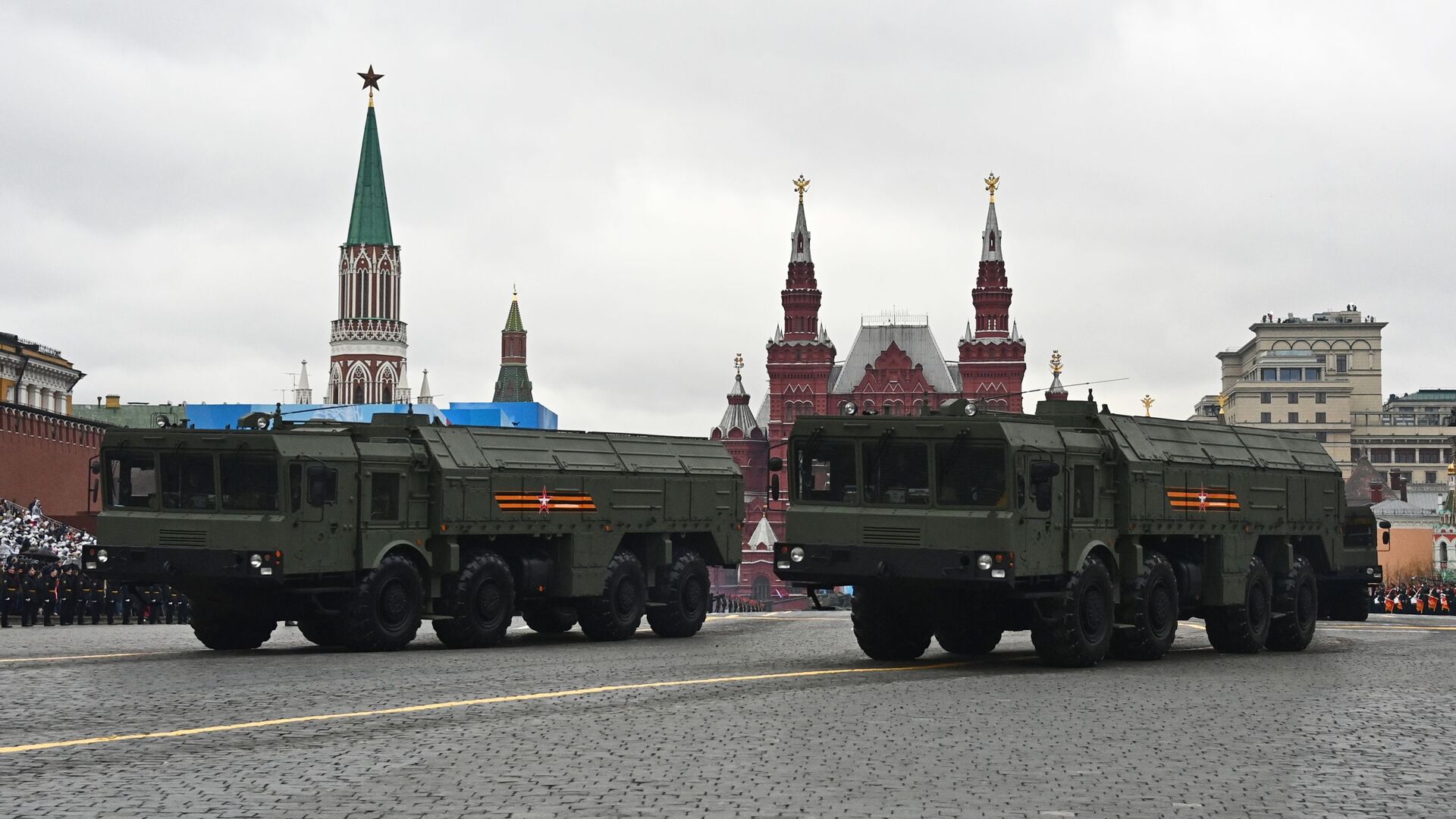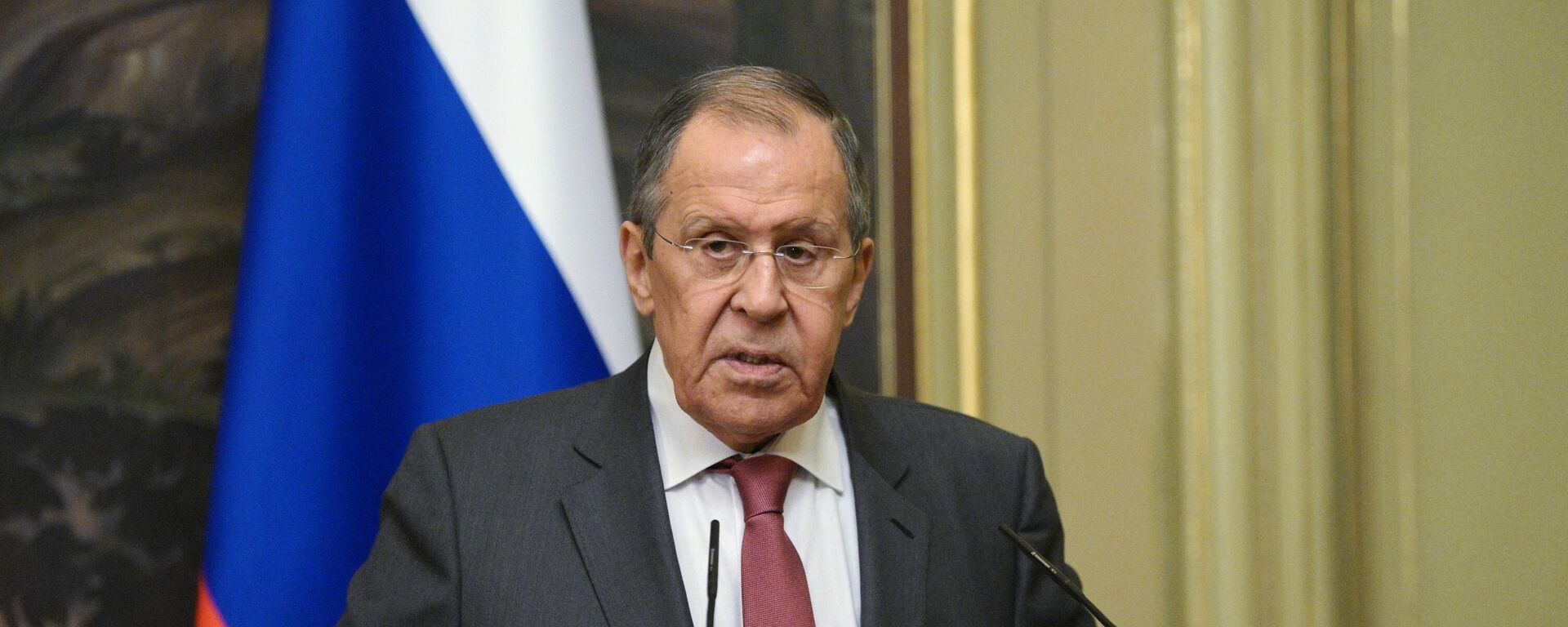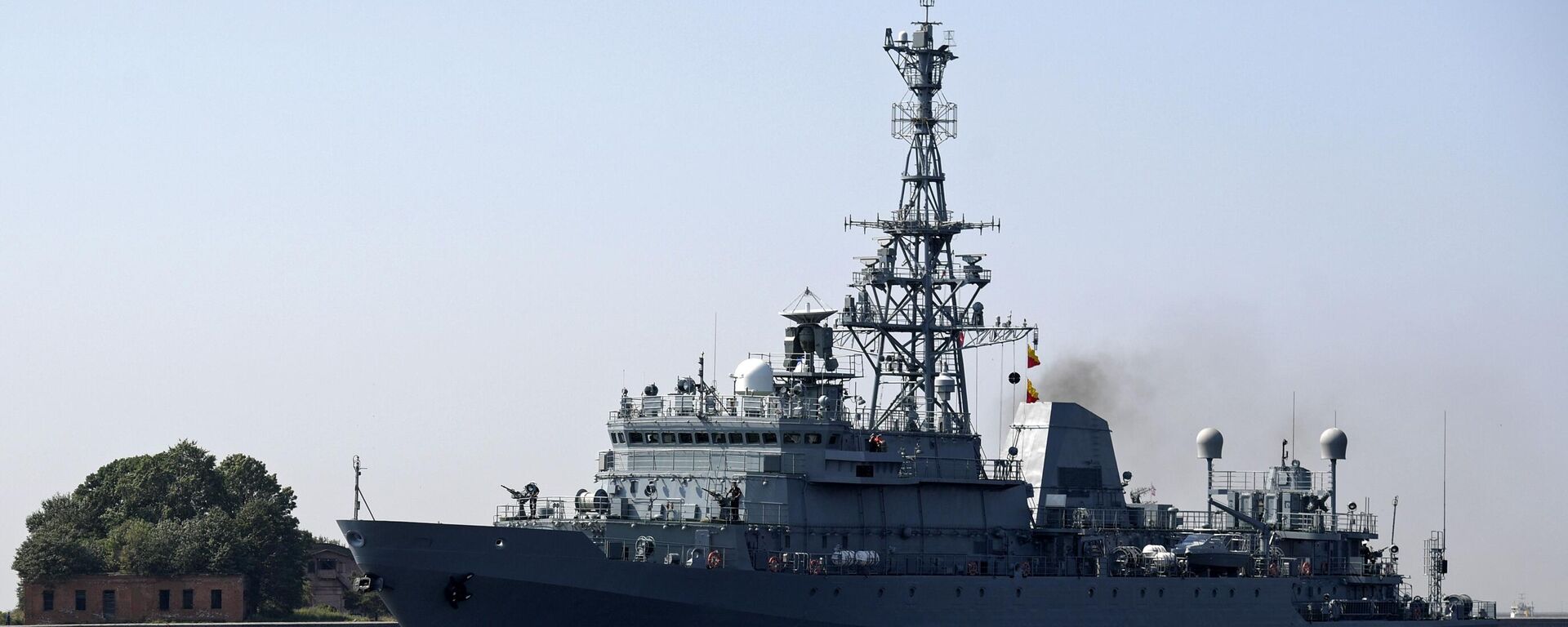https://en.sputniknews.africa/20230528/1059540919.html
Why NATO Has No Right to Complain About Russian Nukes in Belarus
Why NATO Has No Right to Complain About Russian Nukes in Belarus
Sputnik Africa
Belarusian President Alexander Lukashenko has confirmed that Russia has moved ahead with the deployment of tactical nukes to Belarus.
2023-05-28T14:18+0200
2023-05-28T14:18+0200
2023-08-03T10:49+0200
russia
belarus
alexander lukashenko
north atlantic treaty organization (nato)
joe biden
united states (us)
nuclear weapons
cooperation
opinion
international
https://cdn1.img.sputniknews.africa/img/07e7/05/1c/1059541086_0:160:3073:1888_1920x0_80_0_0_944994dd30b84615ee86c3a8a84feb62.jpg
Belarusian President Alexander Lukashenko has confirmed that Russia has moved ahead with the deployment of tactical nukes to Belarus.The Biden administration responded predictably, with White House Press Secretary Karine Jean-Pierre slamming the nuclear deployment as "yet another example of making irresponsible and provocative choices" by Russia, and reiterating Washington's commitment "to collective defense of the NATO alliance."Jean-Pierre's remarks echo those made by NATO in March, when Moscow and Minsk first outlined plans on the transfer of tactical nukes to Belarusian soil. At that time, an alliance spokesperson called Russia's plans "dangerous and irresponsible," and dismissed any suggestion that the decision was a response to longstanding NATO policy – including the stationing of US nukes on European soil."They are located in a number of NATO countries, including Belgium, Italy, Germany. They've been there for decades, and Russia has long complained about it. And that longstanding grievance, combined with other NATO escalations, convinced Russia that if you set the precedent and you don't consider it a violation of the Nuclear Nonproliferation Treaty, then you can hardly accuse us of doing the same if we do it in Belarus. But of course, hypocrisy knows no bounds," the observer said.Russia's move isn't an act of "escalation" so much as it is "an act of equity," according to Sleboda, with the decision sending a "definite signal" on Russia’s commitment to Belarus' security, and the future of any potential NATO-Russia conflict.Combined with the deployment of Russian Iskander-M missile systems and the modification of Belarusian jets to carry nuclear weapons, the analyst hopes the move will cool any hotheads in the Pentagon, Warsaw, and NATO as a whole.Inoculation Against Color RevolutionPointing to Belarus' alliance with Russia, including its membership in the Collective Security Treaty Organization and the Russian-Belarusian Union State, is "something that's not often talked about with the West because they don't like to acknowledge its existence," Sleboda said, recalling the regular threats to Belarusian security from the West, including an attempted color revolution in the country in 2020.On top of that are the strategic considerations, both given NATO's nuclear provocations – like staging nuclear-capable bomber drills near Russia's borders over the Black and Baltic Seas in recent years, and longstanding efforts to create missile defenses in Eastern Europe to try to render Russia's nuclear deterrent obsolete. The nuclear deployment in Belarus should counter these threats, from Moscow's perspective, Sleboda believes.Along with the increased security, the nuclear agreement might mean the transfer of additional advanced military hardware to Belarus, and perhaps some undercover “economic sweeteners” for Minsk, like cheaper gas prices, the observer suggested.Change in Russia's Nuclear Posture?Asked about what the nuclear deployment in Belarus means for Russia's nuclear doctrine, and whether it signals a shift in Moscow’s willingness to preemptively use nuclear weapons – including in Ukraine, as written about ad nauseam in Western legacy media and by DC think tanks, Sleboda stressed that until Moscow announces otherwise, "Russia's nuclear doctrine does not allow for a first strike capability.""I would say that there have been a number of Russian officials and political figures that have been very loose with nuclear talk. They talk about the casual use of nuclear weapons like US congressmen do, you know, it's like [late Arizona Senator John] McCain saying we should turn something into a 'glass parking lot.' But those statements of bluster and rhetoric have nothing to do with reality. And I have to say that in this particular situation I find such use of nuclear threats (that are not part of Russia's nuclear doctrine and so are meaningless) to be less than constructive," Sleboda noted.Otherwise, the international security observer noted, "Russia's nuclear doctrine is clear," and that unless someone uses nukes or other WMDs against Russia first, a nuclear response will not follow, including in Ukraine.
https://en.sputniknews.africa/20230527/1059517633.html
https://en.sputniknews.africa/20230527/1059510436.html
russia
belarus
united states (us)
Sputnik Africa
feedback@sputniknews.com
+74956456601
MIA „Rossiya Segodnya“
2023
News
en_EN
Sputnik Africa
feedback@sputniknews.com
+74956456601
MIA „Rossiya Segodnya“
Sputnik Africa
feedback@sputniknews.com
+74956456601
MIA „Rossiya Segodnya“
moscow and minsk, signed agreements, this week, russian tactical nukes, tactical nukes, storage facility in belarus, defense strategy, international relations, security analyst, mark sleboda, belarusian president, alexander lukashenko, nuclear weapons
moscow and minsk, signed agreements, this week, russian tactical nukes, tactical nukes, storage facility in belarus, defense strategy, international relations, security analyst, mark sleboda, belarusian president, alexander lukashenko, nuclear weapons
Why NATO Has No Right to Complain About Russian Nukes in Belarus
14:18 28.05.2023 (Updated: 10:49 03.08.2023) Moscow and Minsk signed agreements this week on the deployment of Russian tactical nukes at a special storage facility in Belarus. The deployment will mean a significant security boost for Minsk, and threaten to unravel NATO's entire missile defense strategy, says international relations and security analyst Mark Sleboda.
Belarusian President Alexander Lukashenko has confirmed that Russia has moved ahead with the deployment of tactical nukes to Belarus.
"We had to prepare storage areas and the like. We have done this, so the movement of nuclear weapons has already begun," Lukashenko said, speaking to Russian media in Moscow on Thursday.
The Biden administration responded predictably, with White House Press Secretary Karine Jean-Pierre
slamming the nuclear deployment as "yet another example of making irresponsible and provocative choices" by Russia, and reiterating Washington's commitment "to collective defense of the NATO alliance."
Jean-Pierre's remarks echo those made by NATO in March, when Moscow and Minsk first outlined plans on the transfer of tactical nukes to Belarusian soil. At that time, an alliance spokesperson called Russia's plans "dangerous and irresponsible," and
dismissed any suggestion that the decision was a response to longstanding NATO policy – including the stationing of US nukes on European soil.
Mark Sleboda rejects these excuses. "First off, it has to be said, one of the first justifications Russia used for doing this is that the US has actually had tactical nuclear weapons in Europe for decades, hundreds of them, in fact, and they have recently even been upgraded to the B61-12 tactical nuclear warheads [in place] of older gravity bombs," Sleboda pointed out in an episode of Radio Sputnik's The Final Countdown on Friday.
"They
are located in a number of NATO countries, including Belgium, Italy, Germany. They've been there for decades, and Russia has long complained about it. And that longstanding grievance, combined with other NATO escalations, convinced Russia that if you set the precedent and you don't consider it a violation of the Nuclear Nonproliferation Treaty, then you can hardly accuse us of doing the same if we do it in Belarus. But of course, hypocrisy knows no bounds," the observer said.
Russia's move isn't an act of "escalation" so much as it is "an act of equity," according to Sleboda, with the decision sending a "definite signal" on Russia’s commitment to Belarus' security, and the future of any potential NATO-Russia conflict.
Combined with the deployment of Russian Iskander-M missile systems and the modification of Belarusian jets to
carry nuclear weapons, the analyst hopes the move will cool any hotheads in the Pentagon, Warsaw, and NATO as a whole.
Inoculation Against Color Revolution
Pointing to Belarus' alliance with Russia, including its membership in the Collective Security Treaty Organization and the Russian-Belarusian Union State, is "something that's not often talked about with the West because they don't like to acknowledge its existence," Sleboda said, recalling the regular threats to Belarusian security from the West, including an attempted color revolution in the country in 2020.
"Just in the last week, a Polish general and former deputy defense minister, Waldemar Skrzypczak, appeared on Polish TV and said there will be an uprising in Minsk. He spoke about a 'pro-Ukrainian army' by which I assume he means the Belarusian neo-Nazis fighting for the Kiev regime –basically the idea that they will come home and overthrow the Belarusian government, and that Poland should be prepared to support them. Obviously this is exactly one of the types of things that this placement is meant to secure Belarus from," Sleboda said.
On top of that are the strategic considerations, both given NATO's nuclear provocations – like staging nuclear-capable bomber drills near Russia's borders over the Black and Baltic Seas in recent years, and longstanding efforts to create missile defenses in Eastern Europe to try to render Russia's nuclear deterrent obsolete. The nuclear deployment in Belarus should counter these threats, from Moscow's perspective, Sleboda believes.
"One of the reasons they're putting them there is, you know, the tactical value of having nuclear weapons closer to NATO's borders, which ruins all of their missile defense plans… But it also puts Russia's nuclear shield more firmly over Belarus. There will be no military incursion into Belarus [because] there will be nuclear weapons there. And likewise as well, it makes any future attempts at some kind of color revolution or Maidan type insurgency to overthrow the Belarusian government extremely unlikely because Russia will then always have an excuse to intervene," he said.
Along with the increased security, the nuclear agreement might mean the transfer of additional advanced military hardware to Belarus, and perhaps some undercover “economic sweeteners” for Minsk, like cheaper gas prices, the observer suggested.
Change in Russia's Nuclear Posture?
Asked about what the nuclear deployment in Belarus means for Russia's nuclear doctrine, and whether it signals a shift in Moscow’s willingness to preemptively use nuclear weapons – including in Ukraine, as
written about
ad nauseam in Western legacy media and by DC think tanks, Sleboda stressed that until Moscow announces otherwise, "Russia's nuclear doctrine does not allow for a first strike capability."
"The exception for that is, of course, the use of some other type of weapons of mass destruction against Russia, you know, chemical weapons, biological weapons… The other situation, and this is an exceptional one, is an overwhelming conventional attack [that may] threaten the very existence of the Russian state, which is generally interpreted to mean a gigantic NATO conventional attack that manages to destroy the Russian military and is marching on Moscow or St. Petersburg," he explained.
"I would say that there have been a number of Russian officials and political figures that have been very loose with nuclear talk. They talk about the casual use of nuclear weapons like US congressmen do, you know, it's like [late Arizona Senator John] McCain saying we should turn something into a 'glass parking lot.' But those statements of bluster and rhetoric have nothing to do with reality. And I have to say that in this particular situation I find such use of nuclear threats (that are not part of Russia's nuclear doctrine and so are meaningless) to be less than constructive," Sleboda noted.
Otherwise, the international security observer noted, "Russia's nuclear doctrine is clear," and that unless someone uses nukes or other WMDs against Russia first, a nuclear response will not follow, including in Ukraine.



